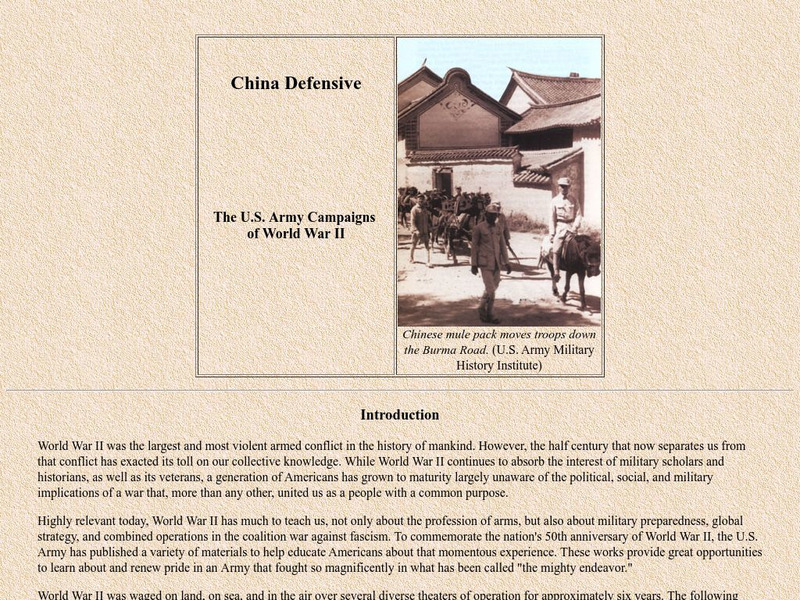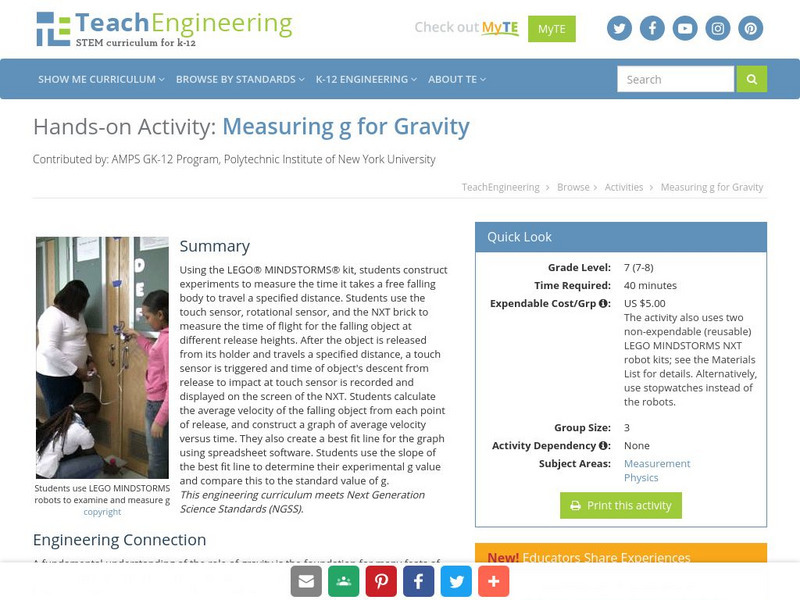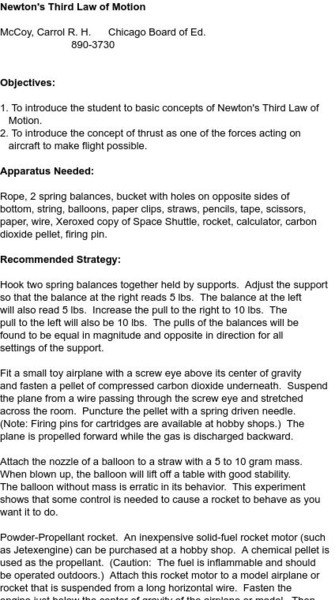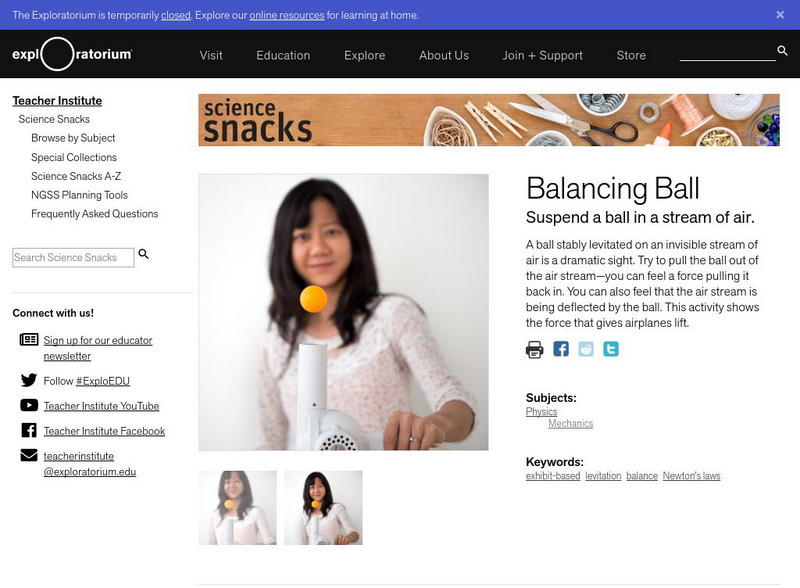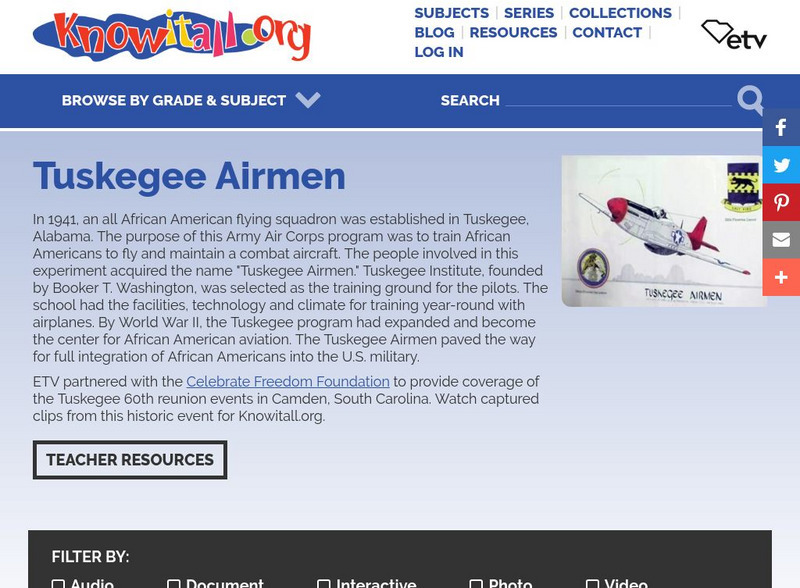Other
Personal: The Laws of Motion
This personal site explains the physics of angular momentum and their application to flight. Part of a much larger site on the procedures, principles, and perceptions of flight.
Other
Spacefilght Now: Air Force Imagery Confirms Columbia Wing Damaged
A detailed article from February, 2003, which discusses Air Force photos that show that there was damage to a wing of the Space Shuttle Columbia. The article also recounts the last few moments aboard the Space Shuttle Columbia before its...
A&E Television
History.com: Miracle of the Andes: How Survivors of the Flight Disaster Struggled to Stay Alive
When an Uruguayan rugby team crashed in the Andes on Friday, October 13, 1972, cannibalism helped some survive two months in harsh conditions. The Uruguayan Air Force Fairchild F-227 had crashed into a glacial valley high in the Andes....
Other
Spacefilght Now: Dramatic Week Ends With Air Force Photo Release
Article from February, 2003, covers the release of a photograph that shows possible structural damage to Space Shuttle Columbia before its disintegration. (February 2003)
PBS
Bombers of World War Ii: Last Flight of Bomber 31
Website that chronicles the story of the search for remains of Bomber 31 that went down in Kamchatka during World War II. There is also a slide show and descriptions of several World War II bombers.
ibiblio
Ibiblio: Hyper War: u.s. Army Campaigns of World War Ii: China Defensive
An official Defense Department account of the war in China from 1942 to early 1945. The war was mostly of a defensive nature (trying to hold off the Japanese).
Other
U.s. Centennial Flight Commission: Air Power:the Battle of Britain
Read a concise account of the Battle of Britain, Adolf Hitler's attempt to conquer Great Britain in the summer of 1940. See how the British prevailed and what mistakes the Germans made.
TeachEngineering
Teach Engineering: Measuring G
Using the LEGO MINDSTORMS NXT kit, students construct experiments to measure the time it takes a free falling body to travel a specified distance. Students use the touch sensor, rotational sensor, and the NXT brick to measure the time of...
Science and Mathematics Initiative for Learning Enhancement (SMILE)
Smile: Third Law of Motion
This Illinois Institute of Technology site is a lesson plan and lab that utilizes a toy rocket to investigate Newton's third law. Includes directions and practical applications.
NASA
Nasa: Weight and Balance Forces Acting on an Airplane
The effects of forces exerted on an airplane wing are discussed both conceptually and mathematically. Illustrations and sample problems and solutions are provided.
Science Buddies
Science Buddies: Two Stage Balloon Rocket
Learners will build a multi-stage balloon rocket that they can launch across the classroom while learning about real space flight and Newton's laws of motion.
Science Buddies
Science Buddies: Diy Mini Drone
Explore the world of drones as you build your own mini drone using popsicle sticks in this fun activity.
TryEngineering
Try Engineering: Water Rocket Launch
The main focus of this lesson is learning about aerospace engineering and the principles of rocketry. To accomplish this, students will work in teams to design, build, and launch a rocket made out of a soda bottle, then present their...
Exploratorium
Exploratorium: Science Snacks: Balancing Ball: Suspend a Ball in a Stream of Air
In this lesson plan students learn about air flow using a suspended ball in an air stream.
Smithsonian Institution
Smithsonian Education: Art to Zoo Kiting Up the Sky
This article provides a brief outline on the history of kites as well as information on the forces of kite flight. There are a couple lesson plans included. One lesson directs students in writing kite poems. The other includes...
TeachEngineering
Teach Engineering: What Makes Airplanes Fly?
Students begin to explore the idea of a force. To further their understanding of drag, gravity and weight, they conduct activities that model the behavior of parachutes and helicopters. An associated literacy activity engages the class...
TeachEngineering
Teach Engineering: Adaptations for Aeronautical Engineering
This activity first asks the students to study the patterns of bird flight and understand that four main forces affect the flight abilities of a bird. They will study the shape, feather structure, and resulting differences in the pattern...
Museum of Science
Museum of Science and Industry, Chicago: Activities: Make and Fly a Helicopter
Print and cut out the template for the helicopter. Then experiment with adding and subtracting weight, or changing the shape of the copter or the blades to see what makes it fly best.
NASA
Nasa E Clips: Nasa's Launchpad: The Great Boomerang Challenge [Pdf]
Students use the principles of technological and engineering design to research and explain how airfoil shape affects flight characteristics and how it applies to boomerang flight.. They will work in teams to design, build, test, and...
Digital History
Digital History: September 11, 2001
This site has a comprehensive overview of the September 11, 2001 attacks on the U.S., including information on Osama bin Laden's background, the formation of Al Qaeda, the attacks themselves, the US response, civil liberties and national...
South Carolina Educational Television
South Carolina Etv Commission: Celebrate Freedom: Tuskegee Airmen
A multimedia experience about the Tuskegee Airmen, an all African American flying squadron established in Tuskegee, Alabama in 1941. This exhibit celebrates the 60th Anniversary of the struggles and accomplishments of this group of...
Science and Mathematics Initiative for Learning Enhancement (SMILE)
Smile: Lab Activity: Aviation
This site from the Illinois Institute of Technology provides a student lab activity in which the flight of a paper airplane is investigated and studied. Designed for primary grades, but easily adaptable for junior high young scholars.
TryEngineering
Try Engineering: Blast Off
Hands on activity where students focus on aerospace engineering to investigate space flight from the viewpoint of an engineer. They design, build, and launch their rocket, then share their experiences with the class.
PBS
Pbs Nova: Pilot the Wright Brothers' Flyer
In this interactive, find out how the Wright brothers' design of the first flyer provided lift and speed, and allowed the pilot to make adjustments in response to changes in wind speed and direction.





